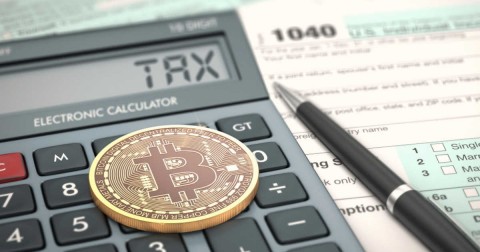- Home
- Resources
- Virtual Times Call For Virtual Assets Regulation – The Impact Of The SEC Statement On Digital Assets In Nigeria
Virtual Times Call For Virtual Assets Regulation – The Impact Of The SEC Statement On Digital Assets In Nigeria
Posted on Fri 25 Sep 2020
- Download Resource
Introduction
Notwithstanding the volatility of the global digital assets market, digital asset (such as cryptocurrency) trading and investment in Nigeria continue to soar. As of 2019, the Nigerian cryptocurrency market was reported to be the seventh largest in the world, in terms of peer-to-peer transaction volumes[1].
For readers who are not so conversant with the crypto-lingo, cryptocurrency, as in other jurisdictions, is regarded as a subset of crypto-assets. The latter refers to cryptographically secured digital representation of value that uses distributed ledger technology (also known as blockchain) and can be transferred electronically. Popular examples of cryptocurrencies include Bitcoin, Ethereum, Litecoin and Ripple XRP. As such, crypto-assets may be in the form of exchange tokens (such as cryptocurrencies), security tokens (financial instruments) or utility tokens (instruments used to access specific services or products).
Investment in cryptocurrency in Nigeria has been on the increase notwithstanding the Coronavirus pandemic. According to Nairametrics[2], the Nigerian cryptocurrency market has outperformed the Nigerian stock market. In 2020, Bitcoin reported a loss of around 5%, when compared to respective drops of 17.5% and 18% for the Nigerian and MSCI All-Country World Index[3]. With a market capitalization of over $126 billion as at April 22, 2020, the cryptocurrency market appears to be much bigger and more liquid than the Nigerian stock market (which had market capitalization less than $31 billion dollars as at April 21, 2020)[4][5].
Notwithstanding the increase in cryptocurrency activities and its acceptance by Nigerians, the Nigerian market is yet to achieve its full potential as investors have been wary of investing in the Nigerian crypto market due to the absence of a defined legal and regulatory framework; a situation which categorized the Nigerian cryptocurrency market as an unregulated industry.
Cryptocurrency and other crypto-assets in Nigeria

Crypto-assets and cryptocurrencies are traded on several (unregulated) virtual exchange platforms in Nigeria, with the currency of exchange (i.e. the payment consideration) being the Nigerian Naira. It is pertinent to distinguish between cryptocurrencies being used as a form of legal tender and crypto-assets as investment securities.
Cryptocurrency is gradually becoming a familiar medium of exchange and can be used to pay for goods and services in Nigeria. However, as a potential alternative instrument of exchange of value (i.e. legal tender), such use should fall within the regulatory supervision of the Central Bank of Nigeria (“CBN”); and to the extent that such crypto-assets qualify as securities within regulatory purview of the Securities and Exchange Commission (“SEC”)[6], they will be subject to the regulatory oversight of the SEC. The CBN, in January 2017, issued a circular to banks and other financial institutions in Nigeria highlighting that virtual currencies are traded in unregulated platforms and that consumers may lose their money without any legal redress. Furthermore, the CBN has prohibited banks and financial institutions from holding, trading or transacting in virtual currencies; whilst mandating such entities to immediately report suspicious transactions by existing customers in this regard to the Nigerian Financial Intelligence Unit. The CBN also emphasized that cryptocurrencies are not a recognized legal tender in Nigeria. Subsequently, in February 2018, the CBN issued a press statement reiterating that dealers and investors in cryptocurrency in Nigeria are not protected by law and cautioned the general public of the risks of dealing in same.
The SEC, on September 14, 2020, issued a statement on digital assets and their classification and treatment as securities in Nigeria (the “SEC Statement”). However, it is important to clarify that the SEC Statement does not address the use of cryptocurrencies as legal tender in Nigeria as same is outside its regulatory purview. Accordingly, whilst the SEC Statement is a clear indication that the SEC has now taken steps towards regulating the trading of digital assets as securities in Nigeria, it does not contradict the position of the CBN in its circulars and press statements referred to above.
Legal Implications of the SEC Statement on the Nigerian Capital Market

The SEC Statement seeks to accommodate the alternative investment opportunities provided by crypto-assets and thus widens the variety of instruments available for trade in the Nigerian capital market. In addition, The SEC Statement sets out the standards for ethical practices regarding dealing in crypto-assets/digital assets in order to promote investor protection and an efficient market.
In issuing the SEC Statement, the SEC relied on the provisions of Section 13 of the Investments and Securities Act No. 29 of 2007 (“ISA”) which empowers it to regulate securities business in Nigeria. Thus, by the SEC Statement, the SEC has confirmed that it will regulate “crypto-token or crypto-coin investments when the character of the investments qualifies as securities transactions.”
The SEC Statement defines “Crypto Asset” to mean a digital representation of value that can be digitally traded and functions as (i) a medium of exchange; and/or (ii) a unit of account; and/or (iii) a store of value, but does not have legal tender status in any jurisdiction. A Crypto Asset does not refer to fiat currency i.e. money issued by a government as a legal tender in a relevant jurisdiction.
The key takeaways from the SEC Statement are as follows:
1. Scope of regulation: all crypto-assets will be deemed to be securities until otherwise proven. The burden of proving that such crypto-assets to be issued are not securities is on the issuer or sponsor (as applicable). As such, issuers/sponsors will be required to make an initial assessment filing with the SEC (by completing the Capital Market Fintech Assessment Form available on the SEC’s portal). At the end of the assessment, the SEC will provide the issuer or sponsor with guidance on the regulatory requirements for carrying on such operations and regulate same, where the SEC deems the crypto-asset to be a security. Instruments structured to be exclusively offered through crowdfunding portals or other exempt methods will not be subject to the SEC’s regulatory oversight. It is pertinent to note that the SEC has issued a revised draft of the Rules on Crowdfunding (the “Second Exposure Draft”). The Second Exposure Draft reflects further amendments made to the draft crowdfunding rules previously issued by the SEC in the first half of 2020 (the “First Exposure Draft”). The Second Exposure Draft amended the definition of “Investment Instruments” to mean “ordinary shares, plain vanilla bonds or debentures, and simple investment contracts approved by the SEC for issuance through a crowdfunding portal from time to time”. However, the term “Investment Instruments”, was initially defined under the First Exposure Draft to mean instruments approved by the SEC for issuance through a crowdfunding portal from time to time including shares, plain vanilla bonds or debentures, and simple contracts. Useful to note that the definition of investment instruments under the First Exposure Draft was broad enough to cover any instrument approved by the SEC, including crypto-assets. However, by limiting the scope of investment instruments to shares, vanilla bonds, debentures and simple contracts in the Second Exposure Draft, the SEC has effectively excluded crypto-assets from investment instruments that may be offered on a crowdfunding platform.
Furthermore, the First Exposure Draft provided that issuers[7] could offer securities or other investment instruments under the Rules without the need to register such securities or other investment with the SEC; provided that such an issuer is incorporated in Nigeria, and accredited and/or accepted by a Crowdfunding Intermediary[8] (“Exemption Provisions”)[9]. Whilst the Second Exposure Draft retained the Exemption Provision, Fundraisers (formerly defined as issuers under the First Exposure Draft) seeking to offer digital-assets on crowdfunding platforms, will not enjoy the ‘exemption’ in the SEC Rules on Crowdfunding in view of the restricted scope of “investment instruments” in the Second Exposure Draft. Consequently, to ensure that Fundraisers enjoy the exemption in the SEC Statement, the authors recommend that crypto-assets be included as an investment instrument in the Second Exposure Draft.
2. Transactions/offers regulated: Digital assets like token offerings (which are treated as commodities, to the extent permitted under the SEC Statement); initial coin offerings, security token initial coin offering (which are likened to securities that represent participation in companies or give rights to dividends, etc.) and other Blockchain-based offers of digital assets within Nigeria by regulated persons discussed in paragraph 3 below, shall be subject to the regulatory supervision of the SEC. The SEC Statement further provides that existing digital assets offerings made prior to the implementation of the SEC Statement and the guidelines of the SEC in this regard, have a three-month period to either submit the initial assessment filing or documents for registration (as applicable).

3. Regulated Persons/Services: any person, (individual or corporate – including Nigerian issuers, sponsors or foreign issuers who are targeting Nigerian investors) whose activities involve any aspect of Blockchain-related and digital asset services will be regulated by the SEC. the Blockchain regulated and digital assets services include the receipt, transmission and execution of orders on behalf of others, dealers on own account, portfolio management, investment advice, custodian or nominee services.
4. Other considerations (i.e. foreign participation): the SEC Statement provides that foreign or non-residential issuers or sponsors (as applicable) may be required to establish a branch office within Nigeria and that where foreign issuers or sponsors is from a country with reciprocal agreements with Nigeria, the SEC will recognise such issuers/sponsors. Recognition status will also be accorded to an issuer or sponsor, where the country of the foreign issuer or sponsor is a member of the International Organization of Securities Commissions.
Due to the pressure on prices of commodities as a result of decline in crude oil prices, inflation and other economic factors, blockchain-based virtual asset trading has been on the rise. Accordingly, there has been a growing interest in cryptocurrency trading by Nigerians. In response, the SEC, as the watchdog for investor interests in Nigeria, issued the SEC Statement to safeguard against the interests of the general public. Following the SEC Statement, issuers of crypto-assets will be subjected to the burden of making an initial assessment filing with the SEC for public offers of such crypto-assets; and where the SEC deems same to be a security, such issuance will be subject to the approval of the SEC. Additionally, the crypto-assets to be issued will be required to be registered with the SEC. This has transaction cost implications and the requirements imposed by the SEC will need to be complied with by prospective issuers.
Commercial and Tax Related Considerations

It is unclear what tax rules will apply to crypto assets. It is expected that the Relevant Tax Authorities (“RTAs”) will issue circulars providing guidance on the tax treatment of crypto assets under existing Nigerian. Until such circulars are issued, issuers and holders of crypto assets may be uncertain as to what tax rules will apply and may ultimately seek to take undue advantage of this lack of clarity. This is a key point for the RTAs to consider, particularly in reference to the tax treatment of income derived from crypto-asset transactions under existing Nigerian tax laws. Key considerations include whether such income will;
- qualify as gains received from the disposal of chargeable assets, and thus, subject to capital gains tax;
- be treated as assessable profits, subject to Companies’ Income Tax (“CIT”) (for companies) and personal income tax (for individuals); and
- if the disposal of crypto-assets will qualify as a ‘supply of goods’ subject to Value Added Tax (“VAT”) - as it remains unclear if services provided in connection with crypto asset transactions, will constitute ‘supply of services’ subject to VAT.)
Furthermore, it is also important to consider the legal classification of crypto-assets for tax efficiency purposes. Will such assets qualify as personal property; such as shares? As noted above, the rules relating to the tax treatment of digital assets in Nigeria, are unclear. Whilst the Finance Act 2019 has extended Nigeria’s CIT regime to the digital economy, unfortunately, this innovation does not fully address the issue around specific classification of crypto assets, for tax purposes.
In addition, stakeholders such as the Nigerian Stock Exchange, FMDQ and NASD must ensure that their platforms are able to accommodate specific technological requirements (such as blockchain enabled platforms) for trading of crypto-assets, particularly to safeguard against such funds being used in connection with money laundering, corruption and terrorism.
Ultimately, whilst crypto-assets such as utility tokens, security tokens and derivatives and collective investment funds of crypto-assets are regulated by the SEC, crypto-assets structured to be exclusively offered through crowdfunding portals or other exempt methods, remain unregulated until the SEC (in the case of crypto-assets offered through crowdfunding portals) issues the final rules on Crowdfunding. It is therefore pertinent that the apex capital market regulator, in issuing a robust framework to govern crypto-assets, considers the inter-relation between crypto-asset trading on a recognized exchange, and crypto-asset structured to be offered through crowdfunding portals, and efficiently harmonize both frameworks at the relevant time.
DISCLAIMER: This article is only intended to provide general information on the subject matter and does not by itself create a client/attorney relationship
between readers and our Law Firm or serve as legal advice. We are available to provide specialist legal advice on the readers’ specific circumstances when they arise.
[1] “Nigeria’s cryptocurrency market in 2019 and beyond” published on Business Day on February 6, 2019, accessible via https://businessday.ng/technology/article/nigerias-cryptocurrency-market-in-2019-and-beyond/. Retrieved on September 15, 2020
[2] Bitcoin is giving better returns than the Nigerian Stock market” published on Nairametrics on April 22, 2020, accessible via https://nairametrics.com/2020/04/22/bitcoin-giving-better-returns-than-the-nigerian-stock-market/ Retrieved on September 15, 2020
[3][3] Ibid.
[4] Ibid.
[5] Kindly note that the data as of April 2020 is only being referred to for the purpose of comparing the growth in investment in the cryptocurrency market against that of the Nigerian stock market within the relevant period.
[6] Useful to note that only securities issued by publicly listed companies and debt instruments issued by certain entities/institution with a tenor of more than 270 days fall within the regulatory oversight of the SEC.
[7] An issuer is generally defined as the originator, maker or obligor, or creator of the investment instrument to be issued on any registered crowdfunding platform pursuant to the SEC Exposure Crowdfunding Rules.
[8] A Crowdfunding Intermediary is defined in the Second Exposure Draft as an intermediary organized and registered by the SEC to facilitate transactions involving the offer or sale of securities or investments through an online electronic platform.
[9] Further conditions to qualify for exemptions under the SEC Draft Rules on Crowdfunding is set out in Rule 4 of the draft Rules.
More Resources
-
Mon 9 Oct 2023
Nigerian Chapter of The ICLG: Private Equity 2023
-
Mon 14 Aug 2023
Nigeria Chapter Of The 11th Edition Of The Aviation Law Review











